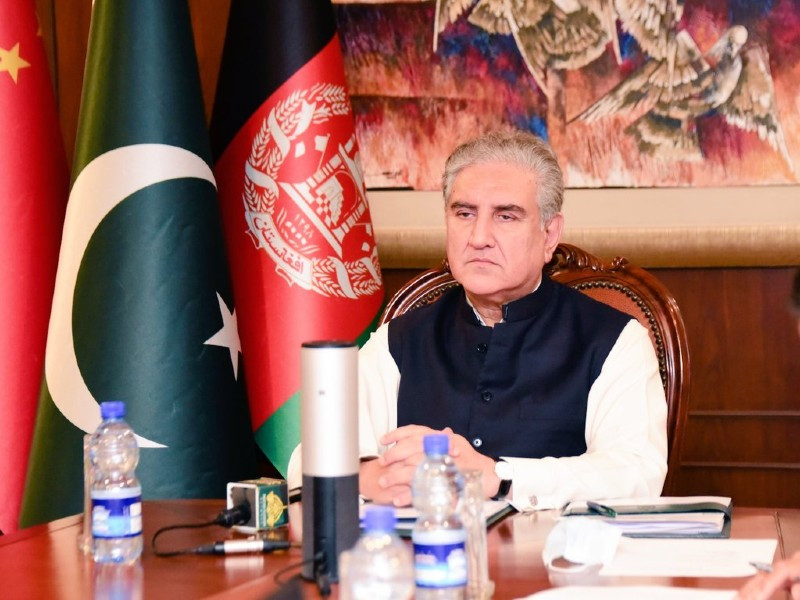
by Arwin Rahi 13 October 2021
Afghans have long suspected and accused Pakistan of sheltering and supporting the Taliban. Pakistan, however, has always denied these allegations. To what extent exactly Pakistan did or did not support the Taliban is beyond the scope of this writing, which focuses on the Pakistani government’s recent overt pronouncements and measures in support of the Taliban.
After the Taliban’s recent “conquest” of Afghanistan, a number of high profile Pakistani government officials, including Prime Minister Imran Khan and Foreign Minister Shah Mehmood Qureshi, have expressed support for engagement with the Taliban. Although Pakistan’s worries and concerns regarding the deteriorating situation in Afghanistan are understandable, it’s advocating on behalf of the Taliban is dangerous and has the potential to backfire in many directions.
PM Khan’s and FM Qureshi’s obsession with the Taliban in the media is giving most Afghans—pro-Taliban and anti-Taliban—the impression that the Pakistan Government is in charge of running two governments at present, their own and that of the Taliban. Although the Taliban, due to their dependence on Pakistan for now, have not expressed openly their displeasure with Pakistan’s speaking on their behalf, one could argue that their patience with Pakistani officials will soon run out.
Additionally, Director General of the ISI General Faiz Hameed’s overt visit to Kabul in early September was slightly short of a diplomatic fiasco, and a source of embarrassment for the Taliban. The CIA chief had also paid a secret visit to Kabul a few weeks before that, but the Americans managed to keep it under the rug. Pakistani officials, including Mansoor Ahmad Khan the Pakistan ambassador in Kabul, instead preferred to dispense with all covert arrangements.
General Hameed’s overt visit at such a critical time, when the Taliban were deliberating the formation of a government and the battle for Panjsher was in full swing, raised serious questions about the Taliban’s independence and the extent of Pakistan’s influence over them. Although one of General Hameed’s supposed objectives in Kabul was to advise the Taliban to form an inclusive government to include both Shias and women, the Taliban’s semi-literate Mulla-dominated government, however, is everything but inclusive.
No wonder back in early July 2021 Pakistan Chief of the Army Staff General Qamar Jawed Bajwa and General Hameed had told Pakistani lawmakers behind closed doors that “the Afghan Taliban and the Tehrik-e Taliban Pakistan (TTP), also known as the Pakistani Taliban, were ‘two faces of the same coin.’”
Moreover, it is evident the U.S. and its NATO allies are not happy about their withdrawal from Afghanistan the way it unfolded. The U.S. in particular will likely make an attempt at tying Pakistan to its failure in Afghanistan, and subsequently punishing Pakistan with some sort of sanctions or other limitations. The sooner Pakistani officials and politicians distance themselves from the Taliban the better. Let the Taliban speak for themselves so that the world can see if they really are as “reformed” and trustworthy as PM Khan and FM Qureshi would like everyone to believe.
Pakistan may be forced by circumstances to engage with the Taliban. The engagement, however necessary, can remain covert for now. Before making public pronouncements in favor of the Taliban, Pakistani officials and politicians must carefully consider the pros and cons of advocating the Taliban’s case at the international level, where the Taliban are likely setting themselves up for becoming a pariah regime once again.
